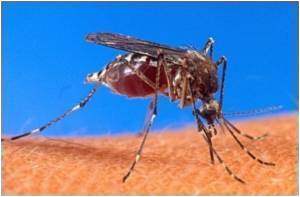Fixed-dose pyronaridine–artesunate combination drug is as good as, if not better than, artesunate-mefloquine drug combo in treating malaria caused by Plasmodium falciparum mosquito, according to a study published in the New England Journal of Medicine.
Malaria is an infectious disease caused by the mosquito. The disease is spread by the bite of the mosquito. After sucking blood from human beings the mosquito releases Plasmodium parasite which actually causes the disease.A clinical trial was done to find out the comparative effectiveness of pyronaridine - artesunate single pill drug and mefloquine plus artesunate combination as separate pills for the treatment of Plasmodium falciparum malaria.
According to a study the fixed dose of the combination of pyronaridine-artesunate was found to be as effective as artesunate plus mefloquine in curing malarial infection.
Ronnatrai Rueangweerayut and his colleagues from the Mae Sot general Hospital from Tak, Thailand randomly took 1,271 patients from Asian and African region. These patients had confirmed uncomplicated Plasmodium falciparum malaria.
Pyronaridine is a widely used anti-malarial drug in China while artesunate and other identical artemisinin-based agents are used for treating malaria in the malaria prone regions.
A fixed dose of 60mg artesunate plus 180mg pyronaridine was given to 848 patients while 423 patients were given 100mg artesunate plus 250mg mefloquine were administered for three days.
On the 42nd day, the efficacy was found to be 83.1 percent with pyronaridine-artesunate group and 83.9 percent in mefloquine-artesunate group.
The researchers stated, “Fixed-dose pyronaridine-artesunate was efficacious in the treatment of uncomplicated P. falciparum malaria. In Cambodia, extended parasite clearance times were suggestive of in vivo resistance to artemisinin.”
They concluded that pyronaridine-artesunate has greater potential for treating P. falciparum malaria.
This study was supported and funded by Shin Poong Pharmaceutical co. and the Medicines for Malaria Venture.
Reference:
Pyronaridine–Artesunate versus Mefloquine plus Artesunate for Malaria; Ronnatrai et al; N Engl J Med 2012; 366:1298-1309April 5, 2012
Source-Medindia












